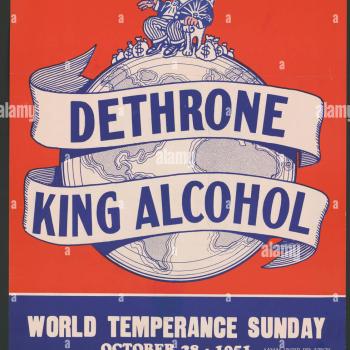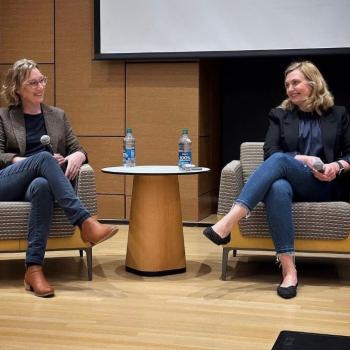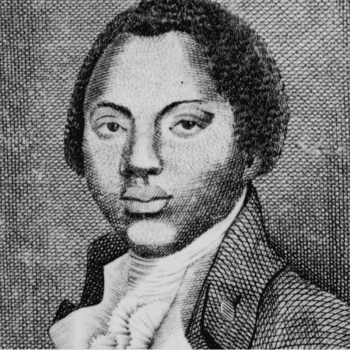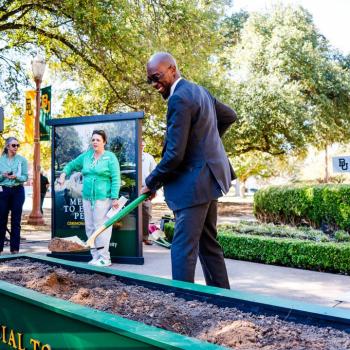Part of InterVarsity’s response to the #BlackLivesMatter controversy has been entirely predictable. In part, the organization is negotiating the intricacies of evangelical politics. A statement released on December 31, 2015, in the wake of controversy read: “InterVarsity does not endorse everything attributed to #BlackLivesMatter. For instance, we reject any call to attack or dehumanize police. But – using the language of Francis Schaeffer and Chuck Colson – we are co-belligerents with a movement with which we sometimes disagree because we believe it is important to affirm that God created our Black brothers and sisters.” Appealing to these evangelical icons is meant to appease conservative critics while supporting minority co-religionists.
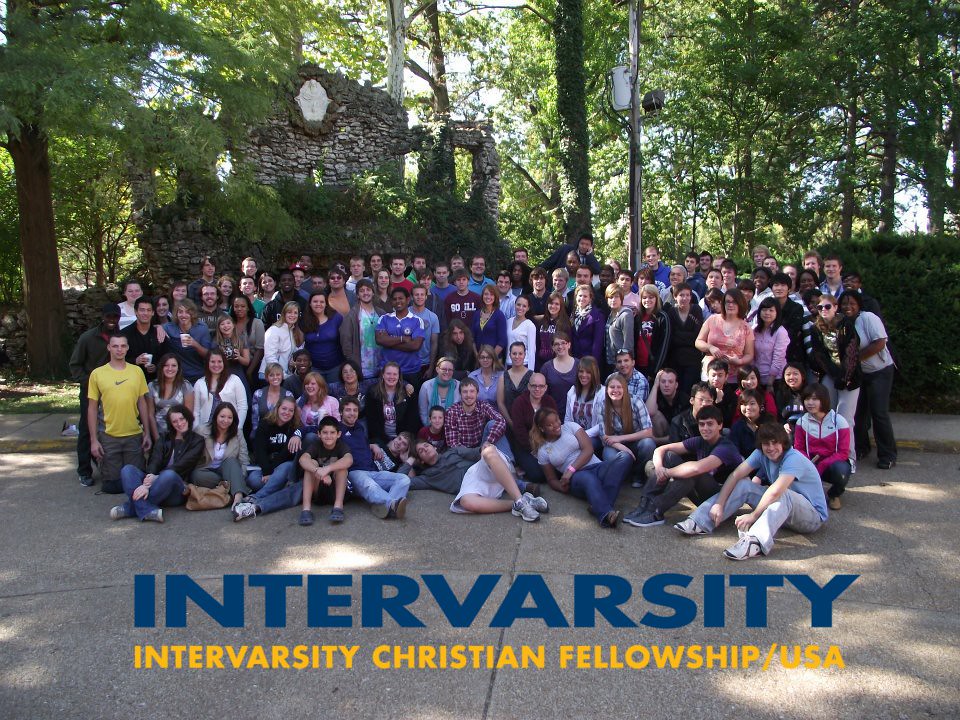
A more interesting insight comes from InterVarsity’s subsequent paragraph. “We see racial reconciliation as an expression of the gospel (e.g., Ephesians 2:14-18), and as an important practice in preparation for global missions. The need for reconciliation is obvious in the Middle East and other global mission fields. It is just as obvious in the United States. InterVarsity has been involved in this conversation for decades. We believe it is important to stand alongside our Black brothers and sisters.”
So in addition to responding to the lived reality of oppression in the United States, InterVarsity also acts out of a profound global sensibility. Urbana is a missions event intended to prepare college students to share the gospel. It is attentive to global critiques of evangelical missions. And it includes a remarkably diverse constituency. About one-half of those at Urbana 15 are people of color, including more than 1,200 African American participants. “InterVarsity chose to participate in this conversation because we believe that Christians have something distinctive to contribute in order to advance the gospel,” reads the statement.
The global encounter has long been a source of social justice for InterVarsity. At Urbana ’73, Pius Wakatama lamented that missionaries forced converts to discard their own ethnic markers in the face of the “paternalistic attitude that views mature nationals as being like children who need to be constantly supervised.” Peruvian Samuel Escobar, who was General Director of InterVarsity-Canada from 1972 to 1975 and then worked with the International Fellowship of Evangelical Students in Latin America for the next 25 years, was similarly provocative. He was a main speaker at InterVarsity’s Urbana conventions of 1970, 1973, and 1981, drawing praise from students for his “prophetic call to service” and his sustained attack on American evangelicals’ defense of the status quo. In 1970 the Los Angeles Times reported Escobar as declaring at Urbana that “the people of the third world are increasingly repelled by the white, middle-class God represented by American culture.” His presentation on “Social Concern and the Gospel,” which attracted 1,050 students, outdrew nearly every other workshop that year.
Much of the influence came from IFES, the umbrella organization for InterVarsity in the United States. In the 1970s members of IFES in Costa Rica wrote:
Panama has waited patiently while you procrastinated in the renegotiation of the treaty through the years of Vietnam, Watergate, and the recent elections. You condemn the relics of colonialism in Rhodesia and South Africa. Why are you so slow to see the ‘beam in your own eye?’ During the construction of the canal more than 25,000 poor laborers from the Third World laid down their lives on the altar of the First World economic development—yet your politicians have the gall to boast ‘we built it’! Your senators have been swamped with letters from citizens blinded by ignorance, greed, and ethnocentrism. We exhort you as brothers and sisters in Christ to write your senators today, indicating your support for the new treaty as a step toward justice for Panama and better relations with all Latin America.
Global sources continue to feed domestic activism. Back in October, several months before Urbana ’15, Joe Ho, director of InterVarsity’s Asian American ministries, wrote that Christians should support #BlackLivesMatter despite evangelicals’ resistance to support “liberal politics.” And then throughout Urbana ’15, there was considerable wrestling over questions of justice and mission from an international perspective. Consider these synopses of workshops and panels last month:
- Although the gospel has been a powerful, enduring statement for equality and justice, Christians sometimes ignore that part of our common calling. In a talk on the theology of nonviolent and violent protest in the Ukranian Euromaidan Revolution, student leader Yegven Shatalov described Ukranian Christians awakening to their social mission after generations of disengaging from politics under the Soviet Union.
- In a talk on the vocation of law in God’s global mission, legal scholar Brian Dennison, who lived in Kampala, Uganda, explored the systemic nature of injustice.
- The work of sharing the Christian gospel has at times been linked with oppression when international missionaries misused their power in the communities they purported to serve. At Urbana, an anonymous speaker shared post-colonial critiques of Christian missions and offered 5 practical ways to avoid neo-colonialism and cultural domination in missions.
- In a talk entitled “Make Reconciliation, Not Just Peace: Lessons from Burundi,” Emanuel Bagumako urged students to see the Incarnation as a model for racial reconciliation.
- In a panel on “Why Should Christians Care about Creating Diverse Worship Experiences,” the worship leaders who wore Black Lives Matter t-shirts discussed “As a worship leader, I have a position of power. I want people to feel welcome, but what can I do in my power to help people feel welcome?”
- Ben Lowe described climate change in global terms as “a mounting injustice impacting communities around the world.”
Why this linking of the world and domestic? It’s a long story (one I’ll tell in a forthcoming book), but one reason is that sacralized missionary pathways paved the way. In an era of postcolonialism, many evangelicals have been listening carefully to fellow Christians around the world. InterVarsity’s activism cannot be understood apart from their missionary sensibilities.
*** Update: Similar thoughts from the International Fellowship of Evangelical Students ***







